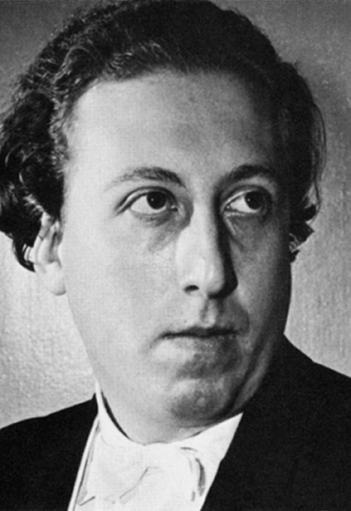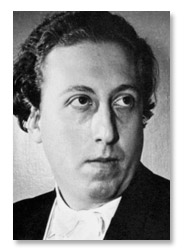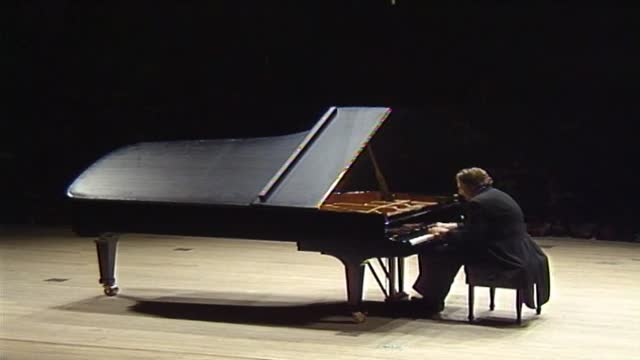


Berman’s first teacher was his mother, herself a pupil of Isabella Vengerova, but at an early age he had lessons from Savshinsky of the Leningrad Conservatory. Berman first played in public at the age of four, and at the age of seven he took part in a concert at the Bolshoi Theatre in Moscow, subsequently being asked to record Mozart’s Fantasy in D minor K. 397, and a composition of his own. At nine, his parents moved to Moscow and he joined the Central Music School for Children, receiving tuition from Alexander Goldenweiser and making his debut the following year with the Moscow Philharmonic in Mozart’s Piano Concerto in C major K.503. When Berman moved on to the Conservatory, Goldenweiser continued to teach him. Although he finished his studies with Goldenweiser in 1953, he continued to receive further tuition from Maria Yudina, Heinrich Neuhaus, Sviatoslav Richter and Vladimir Sofronitsky, and performed in the USSR and Eastern Europe. ‘I did not work very often with Sofronitsky, whom I knew towards the end of his life, around 1958–1960. He has taught me how to get closer to the spirit of the music.’
Berman took part in competitions, gaining a first prize in Berlin, fifth place at the Queen Elisabeth Competition in Brussels, and third prize at a competition in Budapest. In Hungary he was compared to Liszt, and later in Italy as ‘an heir to the great Richter’. In 1958 he embarked on his first tour of the West, and on 23 March 1958 played at the Recital Room of the Royal Festival Hall in London at a concert organised by Saga Records who then recorded him in Beethoven’s ‘Appassionata’ Sonata and Liszt’s Piano Sonata in B minor. However, during the 1960s he was forbidden to make any further tours, although his name became known in the West through commercial recordings made in the USSR, and from statements of artists such as Emil Gilels who said as early as 1955 that Berman was ‘the phenomenon of the music world’. In 1971 he was permitted to play outside of the USSR and toured Italy. Not long afterward, an American concert agent bought an LP of Berman’s in New York and went to Moscow to arrange Berman’s first international tour; his first concert in America was given in January 1976. The three performances in New York were sold out months in advance due to Berman already having ‘legendary’ status as a Russian pianist. Conductor Herbert von Karajan heard a Berman recording of Liszt’s Études d’exécution transcendante and immediately arranged for Berman to record a concerto with him. This was the beginning of his success in the West leading to recording contracts with Deutsche Grammophon and Columbia.
Berman returned to Carnegie Hall in March 1979, and the concert was recorded and released by Columbia, but in the same year Berman was recording again for Deutsche Grammophon. A year later, at the height of his career, he was again forbidden to tour outside of the USSR. He left Moscow in 1990 to teach in Norway and Italy where he settled, teaching at the Music Conservatory in Imola. In 1994 he took Italian citizenship and a year later was appointed to the staff of the Musikhochschule in Liszt’s city of Weimar.
Berman is most associated with the music of Liszt. However in a single concert in Moscow he presented a programme in three sections showing the history of the piano sonata, playing works by Clementi, Beethoven, Schumann, Liszt, Scriabin and Prokofiev. He has also given concerto programmes containing the first concertos by Tchaikovsky and Prokofiev and the third of Rachmaninov. For a solo recital he could programme Rachmaninov’s complete Moments Musicaux and Liszt’s complete Études d’exécution transcendante.
Berman’s recordings have appeared on a variety of labels. In 1976 when he became known in the West, some of his early Melodya recordings were reissued on LP by HMV in Britain, and Columbia in America. Most important of these is his second recording of Liszt’s Études d’exécution transcendante. This stereo version was made in 1963; only the mono 1959 version has been reissued on compact disc in the West to date. The later version, apart from improved sound quality, is quite extraordinary and is one of the best versions ever recorded. Berman’s technique is, at times, unbelievable in its velocity and power and the excitement he can generate in these demanding works is rare, because he always retains a high degree of musicality making the technical demands sound unimportant. From the same time come recordings of Liszt’s Piano Sonata, Mephisto-Waltz No. 1, Venezia e Napoli and Rhapsodie Espagnole. All deliver the same level of virtuosity and musicality. In 1991 a compact disc was issued of a performance of Liszt’s Piano Concerto No. 1 made in 1952 with Kirill Kondrashin; this remains an interesting document of the young twenty-two-year-old Berman who was to go on to even greater heights. Four years later in October 1956, when he took part in the Liszt Competition in Budapest, he recorded for Hugaroton Prokofiev’s Piano Concerto No. 1 and Toccata, and a group of Liszt works which have been reissued on compact disc. Other recordings from the 1960s reissued in the West include six of Liszt’s Schubert song transcriptions, Funerailles and a few Hungarian Rhapsodies.
After his recording with Karajan of Tchaikovsky’s Piano Concerto No. 1 in B flat minor Op. 23, Berman’s first solo LP for Deutsche Grammophon was of Prokofiev’s Piano Sonata No. 8 Op. 84 and an excellent performance of Rachmaninov’s complete Moments Musicaux Op. 16. For the same label he also recorded Liszt’s complete Années de pèlerinage, some Chopin polonaises and much Russian music by Prokofiev, Mussorgsky, Rachmaninov and Shostakovich as well as concertos by Liszt and Mozart. His recordings for CBS include Brahms’s Piano Concerto No. 1 Op. 15 with Leinsdorf and the Chicago Symphony Orchestra, a recital disc of encore pieces and the Carnegie Hall recital already mentioned.
Berman ‘live’ can be unpredictable. A Royal Albert Hall Prom performance of the Liszt Sonata in 1984 was somewhat uneasy, but an LP of a concert at Sapporo in Japan vividly conveys Berman’s electricity in a particularly fine performance of Scriabin’s Sonata No. 3. In the mid-1970s HMV in Britain issued Melodya recordings of the Sonatas Nos 1 and 3 by Scriabin, as well as the first two sonatas of Schumann; and for the same company Berman recorded Schubert’s great Piano Sonata in B flat D. 960 in London. The Carnegie Hall concert of 1979 included Clementi, Mozart’s Rondo in A minor K. 511 and Chopin’s Piano Sonata in B flat minor Op. 35; yet matters do not really get going until Berman reaches the Rhapsodie Espagnole of Liszt at the end of the recital. The 1990s saw the Audiofon label release a Liszt recital and a live performance in Norway of Berman with his violinist son Pavel, and various live concerts and broadcasts have turned up on labels such as Discover and Ermitage.
Many of Berman’s Melodya recordings have appeared on compact disc in Japan, and probably his most impressive recording is of Samuel Feinberg’s transcription of the Scherzo from Tchaikovsky’s Symphony No. 6 Op. 74. Recorded in Moscow in 1952, this is some of the most astonishing piano playing to have been captured by the recording process.
In his later years Berman tempered his virtuosity, but his performances always communicate a musicality stemming from the Romantic tradition of Goldenweiser and the Russians of the nineteenth century. As he said himself, ‘For me, the best style is the one with the most heart and the least possible academicism. As a rule, I love contrasting music; I love Liszt, Schumann, Rachmaninov, early Scriabin and Prokofiev.’
© Naxos Rights International Ltd. — Jonathan Summers (A–Z of Pianists, Naxos 8.558107–10).
| Title | |
| Piano Recital: Berman, Lazar - SCHUMANN, R. / LISZT, F. / RACHMANINOV, S. (The 1988 Tokyo Recital) | |

|
Piano Recital: Berman, Lazar - SCHUMANN, R. / LISZT, F. / RACHMANINOV, S. (The 1988 Tokyo Recital)
Composers:
Liszt, Franz -- Rachmaninov, Sergei -- Schumann, Robert
Artist:
Berman, Lazar
Label/Producer: Dynamic |
